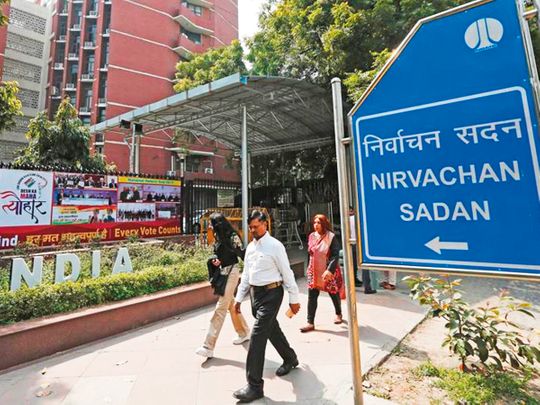
The Election Commission of India (EC) is a statutory body responsible for administering elections in the country according to the rules and regulations mentioned in the Constitution.
Established on January 25, 1950 with an aim to define and control the process for elections, EC ensures smooth and successful functioning of the world’s largest democracy. It is thus considered the custodian of free and fair elections.
The EC conducts polls at various levels — including elections to Parliament, state legislatures, and the offices of the president and vice-president of India.
The most crucial challenge before the Commission is to implement electoral norms and the Model Code of Conduct.
It has been empowered to oversee political parties and candidates and take appropriate action in case of violations of electoral practices and Model Code of Conduct.
EC gives recognition to national, state and regional political parties and allots symbols to them. The Commission prepares electoral rolls and updates the voters’ list from time to time.
It also issues crucial notifications pertaining to dates and schedules of elections. Interested candidates can then file nominations as per the election schedule set by the Commission.
In order to prevent influencing the voting trends in the electorate, EC can issue an order for prohibition of publication and disseminating of results of opinion polls or exit polls.
EC takes details of a candidate’s assets on affidavit at the time of submitting nomination paper. The candidates are also required to supply to the Commission details of their expenditure within 30 days of the declaration of results.












